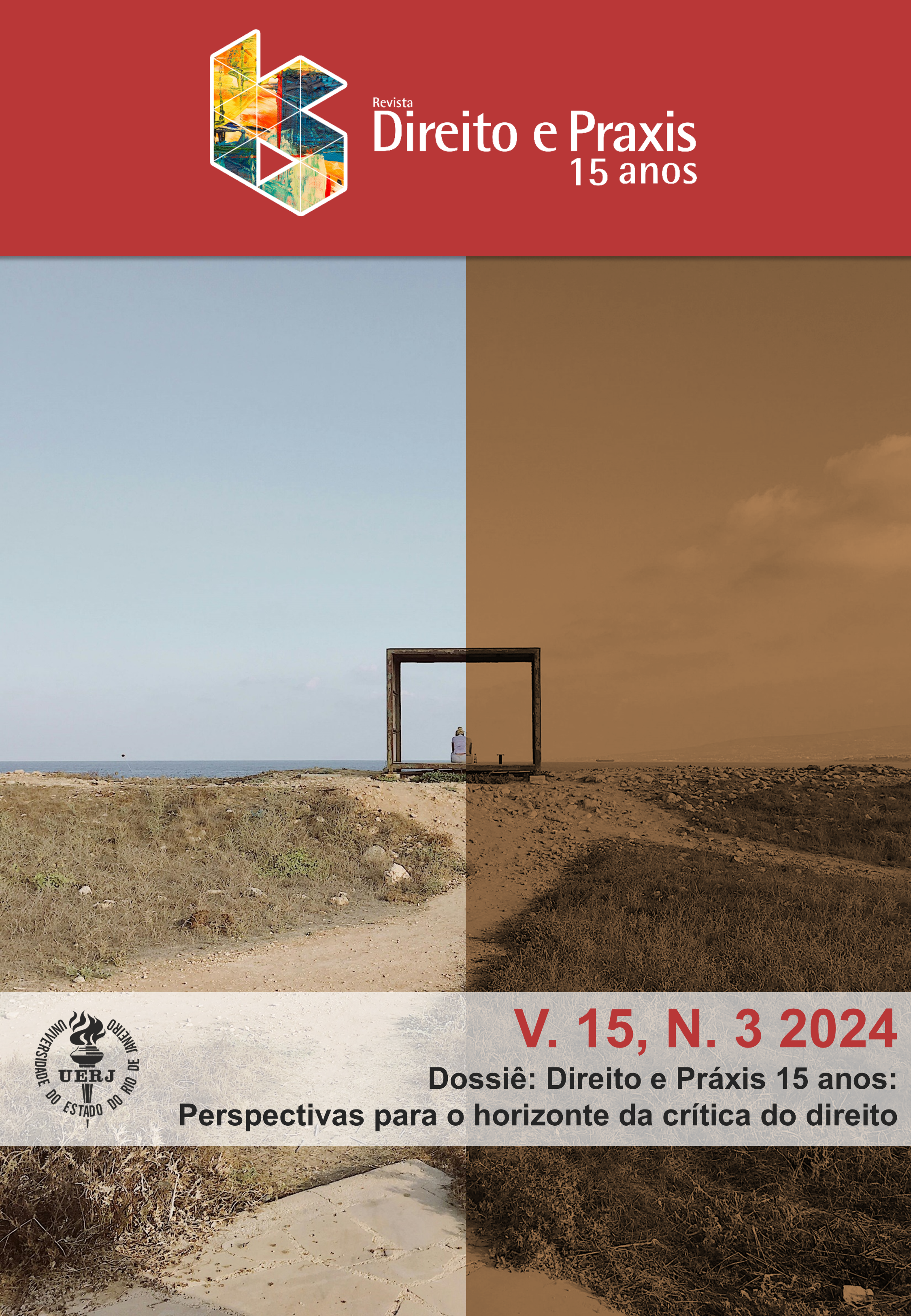The Uberization of Criminal Records
work impediments and legal legitimacies
Keywords:
Surveillance capitalism, Neoliberalism, Contractual freedom, Personal data, UberizationAbstract
https://doi.org/10.1590/2179-8966/2023/71621i
This investigation uses the method of decision analysis to analyze the positioning of the Sergipe Court of Justice, between 2020 and 2022, about the refusal of companies that offer transportation service via app to effect or cancel to remain in their registry with drivers who respond to criminal proceedings without final and unappealable decisions. The analysis of the decisions is based on some strategic theoretical frameworks, as based on the concepts of sacrificial citizenship and the economization of law, neoliberalism as a rationality and a deep process, and capitalism as surveillance. As a result, it was identified that the TJSE prioritized the contractual autonomy, the freedom to guide objective safety criteria, the misalignment of drivers with the Term and Conditions for
use over the principles of the presumption of innocence and the social function of the contract. To problematize this scenario, the article also questions about the (un)protection of workers' personal data by app, the lack of transparency in the use of new technologies to collect data regarding ongoing criminal cases as a way to reiterate old social or labor exclusions. Finally, it concludes on the approximation of the grounds handled by the Sergipe Court of Justice with the new economic demands of neoliberal management, such as the reduction of the constitutional pact in favor of corporate autonomy, both on the disposability of subjects and on the irregular capture of their personal data.
Keywords: Surveillance capitalism; Neoliberalism; Contractual freedom; Personal data; Uberization.
Downloads
Published
How to Cite
Issue
Section
License
Copyright (c) 2023 Direito e Práxis

This work is licensed under a Creative Commons Attribution 4.0 International License.
The authors the sole responsibility for their texts.
It is allowed the total or partial reproduction of the articles of the Journal Law and Praxis, if the author is mentioned.
This work is licensed under a Creative Commons Attribution-Noncommercial-Share Alike 4.0 Unported License.
This license allows you to copy and redistribute the material in any medium or format for any purpose, even commercial, provided the original authorship is cited.
This work is licensed under a Creative Commons Attribution 4.0 International License.



